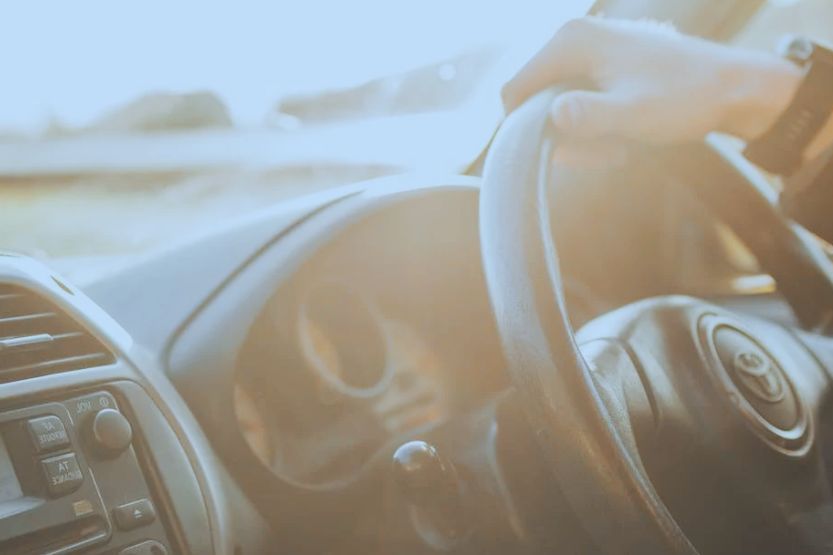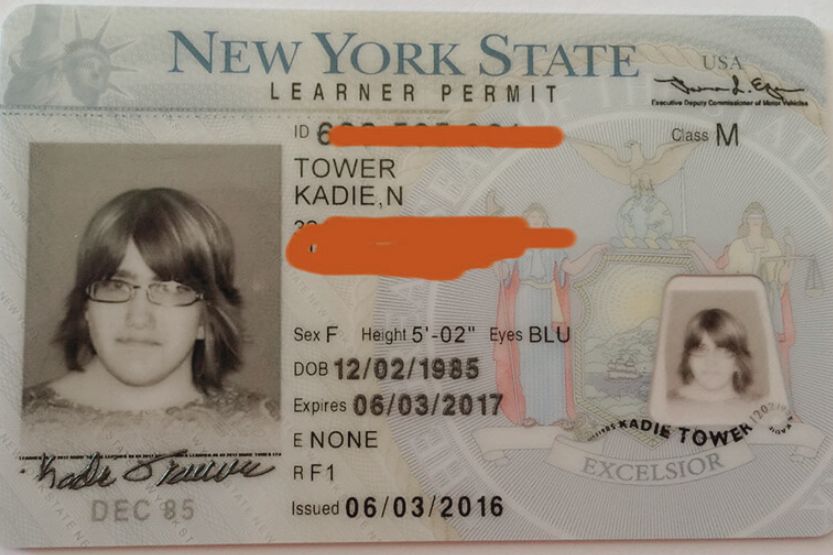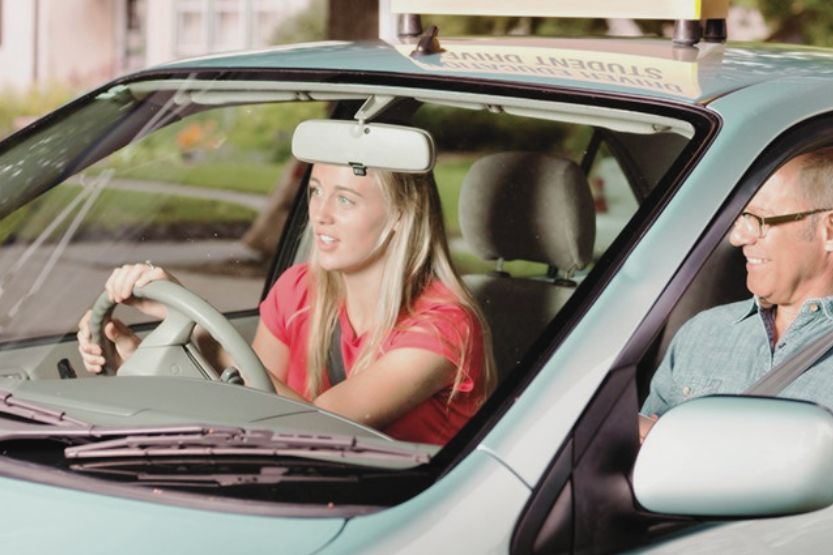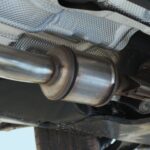If you are only holding a learner’s permit, you should know that there are many driving restrictions that you have to follow. One of these restrictions is that you can’t drive without an adult. But can you drive in another state with a permit?
Many states do not allow a person holding a learner’s permit to drive in another state. One big reason for this restriction is that driving laws in different states vary from state to state. One state may have driving laws a certain way that may differ from another.
Driving is a privilege and not a right. Even those who hold professional driver’s licenses have to observe the restrictions stated on their card. The same is true if you are only carrying a learner’s permit. This permit does not give you the right to drive anywhere you want to – for valid reasons.
Read on to learn more if driving in another state while holding a learner’s permit is not allowed and why.
Can You Drive in Another State With a Permit?

While you may want to, unfortunately, many states do not allow you to drive out of your state if you only hold a learner’s permit. There is a good reason for this restriction. Driving laws are different from state to state.
For instance, a certain driving law may be this way in one state, but the same law may be different in another. So, to avoid confusion, you cannot drive out of your state if you only hold a learner’s permit.
One example of this ruling is Pennsylvania. This state does not allow out-of-state holders of learner’s permits on its streets and roads. So, PA traffic cops will apprehend you if they caught you driving while only holding an Ohio, Delaware, Maryland, or West Virginia learner’s permit.
As for the differing laws of different states, let’s take the example of Wyoming and Colorado. You must be 15 years old in Colorado before they give you a learner’s permit.
However, you only have to be 14 years old and can get one in Wyoming. It’s more restrictive in New York. You must be 16 here before they give you a learner’s permit.
Learner’s Permit Overview
More Restrictions Than a Regular Driver’s Permit
To appreciate this particular driving restriction of a learner’s permit, you must understand its basic concepts. A permit has more restrictions on it than a regular driver’s license. That’s only natural because it is only a permit for someone learning to drive. It’s not a license to drive a vehicle.
Different Age Requirement
In most states, you should be at least 15 years old before they give you a learner’s permit. A few states permit those who are only 14, such as Wyoming and Arkansas.
What Are the Requirements for a Learner’s Permit?
To get a learner’s permit, you have to undergo a process. And the process also differs from state to state. However, based on information from Driving Tests, whatever the process followed by a different state, it usually involves the following:
- Must complete a learner’s course
- You have to pass a learner’s test
- Must pass a vision test
- They have to verify your identification
- You have to fill out an application form and pay any applicable fees
- If you are a minor, you have to present a parental or guardian consent
Restrictions
Most of those who apply for learner’s permits are minors or teenagers. As such, this permit has many restrictions to keep teen drivers safe.
One example of these restrictions is the need for an adult to accompany the holder of the learner’s permit while they are learning to drive.
Typically, the licensed driver must always be inside the vehicle while the learner is driving. Other states allow learners to drive for a short time without an adult, although this is rare.
Some states also prescribe restrictions preventing learners from driving at night.
The different treatments of different states can no more be better shown than the different names they refer to the learner’s permit. Some states call it a provisional instruction permit; others call it a driver’s permit, and some refer to it as a provisional license.
What Is a Learner’s Permit?

A learner’s permit is a limited provisional license the government issues to a person learning how to drive. In other words, it is a learner’s license permitting that person to drive a vehicle, so they can know how to do it correctly.
If you don’t know how to drive and want to be able to use the streets of your state to learn how to do it, you need to get this permit. Before the authorities can grant you this permit, you must satisfy several requirements. I have already listed these requirements above.
What Can You Do with a Learner’s Permit?
While you cannot drive out of state using the learner’s permit, there are certain benefits that you will enjoy because of this. You should not think that it is restricting your movements in any way.
Holding a learner’s permit gives you some of these advantages:
- It allows you to undertake driving lessons and undergo actual training in driving under a licensed driver. This will help you gain a sound education on road rules, signs, and practices.
- It will help you gain some driving experience without getting into an accident because a licensed driver monitors you.
- It gives you the right to legally sit behind the wheel of a vehicle and drive on the streets and roads within your state.
- Keeping the rules of the road is easy when you undergo your practical driving exams because you will be taught to learn all about it with your learner’s permit.
- You can practice driving skills on the road with a learner’s permit. This will increase your chances of passing your driving tests.
Again, can you drive in another state with a permit? Due to the different laws from state to state, driving in another state with only a learner’s permit is prohibited.
How Different Is a Learner’s Permit from a Driver’s License?
Their big difference is their qualifying name. The former is just a permit, and the latter is a license. A learner’s permit allows you to drive with an adult licensed driver or instructor.
That means you are still training to drive a vehicle, so you can’t drive alone. On the other hand, a driver’s license is a document that allows you to drive alone or just by yourself without anyone supervising.
A learner’s permit allows you to drive just one vehicle. If you aim for a motorcycle, you can only drive small motorcycles. When seeking a four-wheeled car, you can only drive sedans.
If you have a driver’s license, you can drive more than one class of vehicle. Typically, you will have limited options on what car you can drive.
With a professional driver’s license, you can drive more and bigger types of cars but still with some restrictions.
Other Restrictions for Student Learners

Apart from the restriction of being unable to drive out of state, the learner’s permit carries other restrictions. Here are some of the additional restrictions you should be aware of:
1. Not Allowed to Drive on Any Street that You Want
Since you are just beginning to learn how to drive, many states do not allow you to drive on any streets or roads you want. This is for your safety, and the public’s as well.
2. Limited Time to Practice
As a learning driver, you can only practice driving during the day, from 9 a.m. to 5 or 6 p.m. Most states will not allow you to drive at night.
3. Driving Instructor Must be At Least 21 Years Old
You cannot just get any person with a driver’s license to accompany you while you are practicing your driving skills.
Like the minimum age requirement for student learners, there’s also a minimum age for driving instructors. In some states, it is 21 years old, while in others, it is only 19.
4. Do Not Text or Call While Driving
Driving requires full concentration. Since you are a student driver, you should not be busy with other matters while driving the vehicle. Even this restriction is demanded of professional drivers.
So, it would be best if you were not on call while practicing your driving skills. You should not receive or send text messages on your mobile while controlling the vehicle. Many drivers have run into accidents by calling or receiving a text from their cell phones.
5. Always Bring Your Learner’s Permit
You must bring your learner’s permit with you when you practice driving. The cops may apprehend you if you do not carry this permit while driving. Or worse, your permit may be revoked.
6. Lending the Learner’s Permit to Other People Is Not Allowed
Your learner’s permit is issued in your name. You are the only person authorized to use it. If you lend it to another person upon their request, your permit may be canceled if they are caught using it.
Is There an Expiration Date for A Learner’s Permit?
Yes, if you are given a learner’s permit, you can only use it within its prescribed period. If that time has passed, you can no longer use it. The typical learner’s permit can last from 2 to 5 years. It depends on your state. Each state has its expiration date.
You can renew your learner’s permit if you haven’t passed your student driver’s test within the prescribed period. However, most states only allow the renewal of a learner’s permit once.
Don’t let your permit expire because if it does, you may be required to go back to square one and apply for a new permit. If possible, do all you can to pass your student driver’s test after completing your learner’s course.
In Closing
Many states do not allow someone holding a learner’s permit to drive out of their state. One of the big reasons is that driving laws differ from state to state. For example, a certain law may be one way in one state but different from another.
In addition, the minimum age requirement for getting a learner’s permit also varies from state to state. Some have it at 16 years old, others at 15, while some few have it at 14 years. To avoid confusion, out-of-state driving is not permitted only for those with a learner’s permit.









